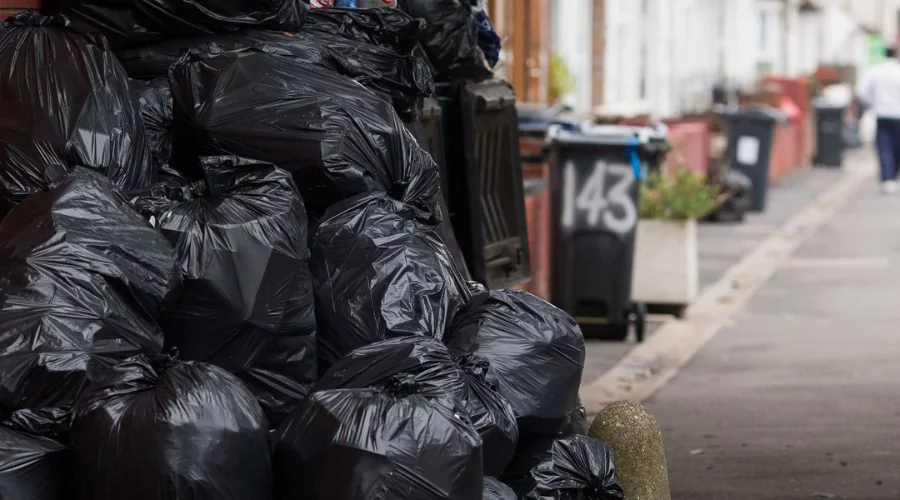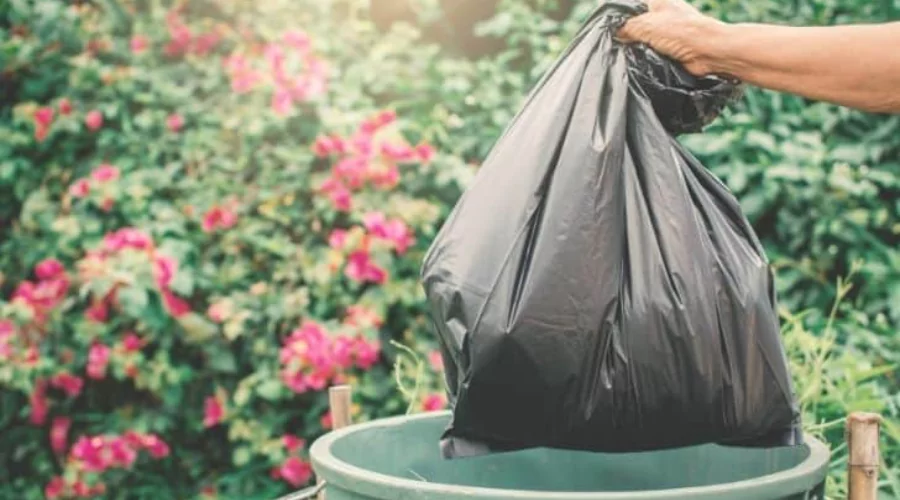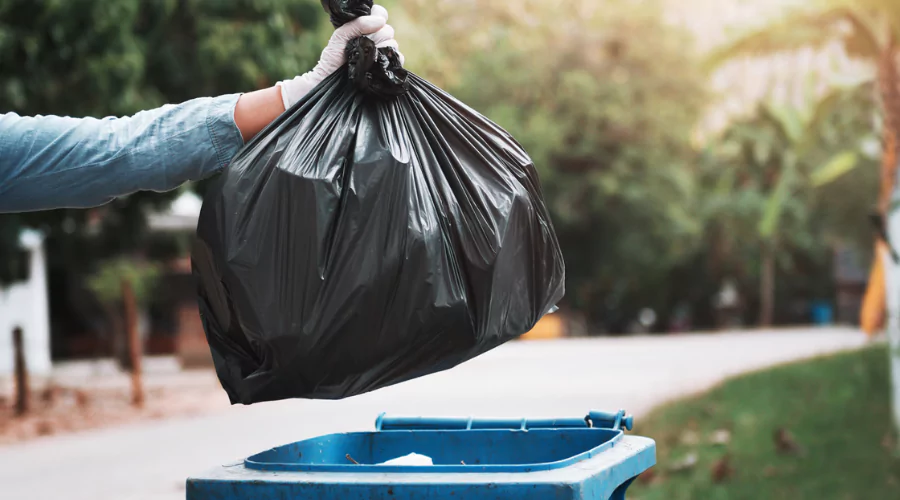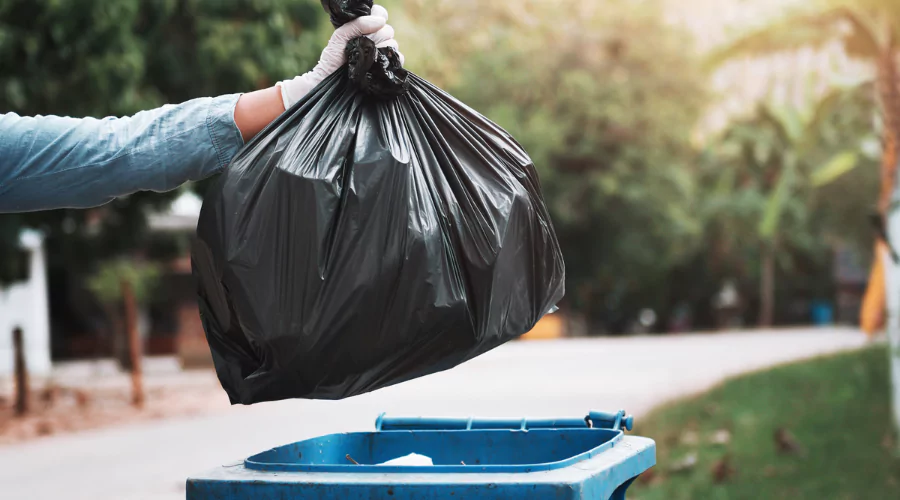Isn’t it strange that we buy single-use plastic garbage bags, fill them with more rubbish, and then throw them away? There must be another way! And, in truth, previous to the 1950s or thereabouts, there were no plastic bin bags, yet people managed to dispose of domestic rubbish quite well. You have plenty of alternatives these days, which is a good thing. Here are some tips for avoiding using single-use plastic garbage bags, followed by recommendations for some of the finest plastic bin bag alternatives. At first appearance, biodegradable waste bags appear to be a good choice for the environment.
The fact, however, is that this is a form of greenwashing. After all, the waste in the bag will not biodegrade, and the bag itself is unlikely to biodegrade in a regular landfill. It simply means you’re paying extra for a product that needs more energy and resources to manufacture than most plastic garbage bags. Moreover, you can also check the official website of Iceland to learn more about bin bags.
Waste Bags Made From Plants And Biodegradable Bin Bags
Things may get a little complicated when it comes to biodegradable, plant-based, and compostable garbage bags. Companies tend to use these phrases arbitrarily. Therefore we as consumers must be on our toes to prevent greenwashing (misleading marketing claims). Plant-based can refer to some materials used to create the bags, such as sugar cane, corn starch, and other plant-derived components. Consequently, while the bag may appear more environmentally friendly, it performs worse than a bag constructed from a combination of recycled and virgin plastic. And if you have to use two packs or more to dispose of your rubbish, the eco-friendliness quickly fades.
What’s The Problem With Regular Plastic Bin Bags?
Most garbage bags are manufactured of virgin plastic and are single-use goods, with a startling amount (possibly in the billions) used in the United States alone each year. Even if it were, the quality of the plastic is so low that it would be difficult to use for anything else. Once the bags reach the landfill, the plastic might take up to 500 years to degrade. And once it does, it degrades into microplastics, which can wind up in streams and soils, harming wildlife and water quality.
However, before the plastic reaches the dump, it has already had a substantial environmental impact. It is because creating these bags necessitates the extraction, transportation, and processing of oil, all of which are energy-intensive, contribute to greenhouse gas emissions and need the use of carcinogenic chemicals such as benzene and vinyl hydrochloride.
List Of Types Of Bin Bags
1. BLACK BIN BAGS

It’s upsetting to see objects discarded in transparent garbage bags. Opaque black rubbish bags conceal the contents. Clear bags also cause invasions of privacy. Perhaps you have a medical issue and must bring your medication to work. You finish the last pill in your bottle and throw it away. You don’t want everyone to know about your problems, or worse, for someone to take your prescription number. For your privacy, black rubbish bags are the best option.
2. CLEAR BIN BAGS
Clear bin bags are becoming mandatory in places like Airdrie, Alberta. According to waste management officials, transparent bags protect prohibited materials from ending up at their disposal. In a transparent garbage bag, bottles and cans should be recycled and have no place to hide. Perhaps you operate a restaurant and must guarantee that good food does not go to waste. A transparent garbage bag allows you to see within the trash, ensuring that the only food thrown away is ruined. Transparent bags may also help prevent your establishment’s theft of valuable things.
3. RECYCLABLE BAGS

Are you concerned about the environment? Compostable rubbish bags are an excellent method to help the environment thrive. Compostable bags are made of vegetable matter like corn or potato starch and will decompose when exposed to moisture. This bag does not pollute the environment like regular plastic bags. Did you know that a plastic garbage bag can remain intact for hundreds of years? It is the best reason to start using compostable bags whenever possible.
4. HANDY GARBAGE BAGS FOR INDUSTRIAL USE

Do you work in the building industry? Super industrial garbage bags are perfect for large amounts of rubbish. These extra-strong bags can store heavy-duty waste, such as huge pieces of wood, metal, and glass. An industrial garbage bag will not readily puncture if a nail is put into it and can stretch widely to handle various things.
Methods For Avoiding Single-Use Plastic Garbage Bags
Leave Out
That’s right, th3e simplest and most cost-effective alternative to plastic garbage bags is none. Depending on where you live and the type of trash you’re disposing of, you may be able to have reusable trash can that waste disposal workers may tip directly into the garbage truck or that you can take to the landfill and empty yourself.
Make Use Of Pet Food Bags.
Most dry pet food is in bags that are difficult for local recycling centres to handle. You can keep them and submit them to TerraCycle, but you can also reuse them as garbage can liners.
Depending on where you live, these single-use goods aren’t necessarily recyclable through curbside pick-up, so they wind up in the garbage. Use them to hold other non-recyclable waste on their route to landfills to give them a new lease on life. Sure, you’ll wind up with a bin full of tiny plastic bags, but that’s good because the waste will still be confined.
Plastic Recyclable Garbage Bags
Garbage bags manufactured from recycled plastic are far superior to those created from virgin petroleum and serve to minimise resource consumption while temporarily keeping plastics out of the waste stream. Sure, they will (eventually) degrade in landfills and produce microplastics. Still, the plastic used to make recycled garbage bags is of poor quality and would be impossible to recycle into anything else useful.
Conclusion
These are some of the best bin bags that you can purchase. Moreover, you can also check Feedhour for more bin bags.
FAQ















